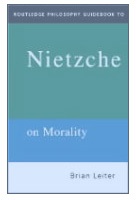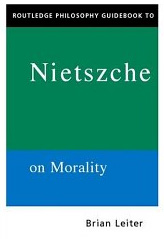In mathematics, the monster Lie algebra is an infinite dimensional generalized Kac-Moody algebra acted on by the monster group, that was used to prove the monstrous moonshine conjectures.
[click to continue…]
{ 26 comments }
Research on human stem cells has been at the centre of one the more ferocious science policy debates in the US, only partially cooled off by recent claims that the necessary cultures can be generated from samples taking from adults, rather than from human embryos destroyed in the process.

“Stem Cell Century: Law and Policy for a Breakthrough Technology”
by Russell Korobkin (with a joint chapter on patents by Stephen Munzer) is a useful guide to the way the debate evolved in the US. There doesn’t seem to have been anything like the same controversy in Australia, although there has been at least one notable example of what might be called common or garden scientific misconduct.
Perhaps because the US stem cell debate is a bit remote for me, I found more interest in the chapters showing how commercial interests in research collided with general scientific ideals of free communications and with donors’ anger when they found that their donated (or appropriated) body tissue had been used to make highly profitable products.Kieran

wrote the book on the latter topic
.
Much of the debate about the relationship between donors and researchers on these issues has been cast in the framework of “informed consent”, which I think is not very helpful here. Neither I think is a focus on property rights over body parts. The real issue is how to finance the provision of public goods like medical research, characterized by highly uncertain returns.
I’ve looked at how to pay for medical research before and generally reached the conclusion that patents are not the best way to go, a view that is strengthened by a reading of Stem Cell Century. Looking at the conflicts discussed here, it seems that they might be less severe if successful research were rewarded by prizes, including ex gratia payments to crucial participants such as tissue donors.
{ 7 comments }
Megan McArdle “responds”:http://meganmcardle.theatlantic.com/archives/2008/02/tax_me_more.php to my earlier “post”:https://crookedtimber.org/2008/02/16/revealed-preferences/ on taxes and revealed preferences and really makes a bit of a mess of things. More detailed discussion below the fold. [click to continue…]
{ 98 comments }
After the Super Tuesday primaries in the U.S., there was a lot of discussion that various big-name endorsements seem to have not made much difference. Most notably, despite being endorsed by Governor Patrick and Senators Kennedy and Kerry, Barack Obama got beaten heavily in Massachusetts. But what struck me at the time, and what seems to have been confirmed by subsequent contests, is that (at least in Democratic primaries) mayoral endorsements seem to make an enormous difference in the campaign. Not only does the candidate with the most endorsements seem to routinely win, they seem to outperform their poll numbers.
[click to continue…]
{ 29 comments }
Just to be clear: I have the highest respect for Brian Leiter’s scholarship and have personally ordered a copy. That said – and while we are on the subject of strange covers showing up on Amazon – there is a problem. I can’t help but feel Routledge must be somehow responsible.
Let’s assume for the sake of argument that we witness the first stage of the process here [Powell’s Books]:

At this point, someone leaned over someone’s shoulder: ‘Dude, it should have, like, an S in it.’
Thus, the happy final product displayed on the Amazon page

My colleage, Axel G., noticed it. (Don’t know whether he cares for getting credit, but now he has it.)
{ 61 comments }
Martin O’Neill has “an interesting review”:http://www.newstatesman.com/200802210046 of a new book about Starbucks.
bq. In the centre of Xi’an, the ancient Chinese capital, there is a gleaming concrete and glass Starbucks. Although a caramel macchiato costs more than a slap-up lunch for four in any of the city’s traditional cafes, this has not stopped it from doing brisk business.
Read the whole thing, as they say.
{ 45 comments }
Most long-lived dictatorships have at least some positive achievements, and, the world being what it is, most dictators have some unattractive enemies. These facts have generated a couple of marathon threads here, following Chris post’ on Castro and mine on Suharto** , not to mention vast numbers on Saddam. Then there’s Algeria and Pakistan, where dictatorial governments have had plenty of fans.
What are the implications of these facts, both for the policies we should support and for the moral judgements we should offer? I have a couple of fairly obvious points to make about policy, and some less clear thoughts about moral judgements.
{ 102 comments }
My GWU law school colleague Dan Solove has persuaded Yale University Press to let him put his new book, _The Future of Reputation_ “online under a non-commercial CC license”:http://www.concurringopinions.com/archives/2008/02/the_future_of_r_3.html. Good stuff: I hope to be reviewing the book here at CT one of these days soon as well as John McGowan’s _ American Liberalism: An Interpretation for Our Time_ (which I am half way through – it’s very good) and a fantasy blockbuster that Matt Lister has sent me, but tenure stuff has seriously cut into my writing-longish-essays time (normal service will be resumed shortly).
{ 6 comments }
This is rather odd.

Pepin books has a forthcoming title, Encyclopedia of Ornament [amazon]. Which, frankly, is just the sort of thing I might buy. Pepin books – all those Agile Rabbit titles, maybe you’ve seen them – are great, if you like that sort of thing.
But, as I am very prepared to notice, that cover is just plate 17 of Haeckel’s Kunstformen der Natur, with the title on top. I wonder whether this is some sort of joke. Maybe, since the book isn’t out until June, they decided to have some fun, putting a dummy graphic up. It is pretty funny to have a bunch of ornamental-looking things, none of which are actually ornaments, most of which are carnivorous colony life-forms.
{ 16 comments }
Belle, “at her and John’s other place”:http://examinedlife.typepad.com/johnbelle/2008/02/nasty.html, describes the argument of a quite startlingly horrendous post at NRO’s _The Corner._
The truly beautiful thing about this is that it incoherently wavers between two poles of repulsive slander: is it Communist Negroes having sex with our white women? Or are Communist Jewesses subverting black Americans who, patriotic though modestly ill-treated, would have been able to resist had the party not offered them the tempting fruits of miscegenation?
Unfortunately, I imagine that this is only the start …
{ 55 comments }
I’ll state my question first: to what extent did people believe, in the 30’s and early 40’s, that capitalism was doomed? [click to continue…]
{ 59 comments }
I haven’t looked yet, but I’ve no doubt that there’ll be lots of posts in the blogosphere saying “good riddance” to Fidel Castro (especially from “left” US bloggers like Brad DeLong who never miss the chance to distance themselves). And, of course, Castro ran a dictatorship that has, since 1959, committed its fair share of crimes, repressions, denials of democratic rights etc. Still, I’m reminded of A.J.P. Taylor writing somewhere or other (reference please, dear readers?) that what the capitalists and their lackeys really really hated about Soviet Russia was not its tyrannical nature but the fact that there was a whole chunk of the earth’s surface where they were no longer able to operate. Ditto Cuba, for a much smaller chunk. So let’s hear it for universal literacy and decent standards of health care. Let’s hear it for the Cubans who help defeat the South Africans and their allies in Angola and thereby prepared the end of apartheid. Let’s hear it for the middle-aged Cuban construction workers who held off the US forces for a while on Grenada. Let’s hear it for Elian Gonzalez. Let’s hear it for 49 years of defiance in the face of the US blockade. Hasta la victoria siempre!
{ 380 comments }
“Mark Schmitt”:http://www.prospect.org/csnc/blogs/tapped_archive?month=02&year=2008&base_name=the_pete_rose_of_politics#104506 on another of those principles that John McCain only “‘bends or breaks out of desperation and with distaste'”:http://www.nytimes.com/2008/02/17/opinion/17kristof.html?hp.
We now have the exact language of John McCain’s “second loan,” and it is a legal masterpiece, albeit an ethical travesty … rather than pledge his existing certification for matching funds as collateral for the loan, which would bind him to the system and thus the spending limits, McCain carefully pledged to seek to re-enter the system later, and to use a non-existent future certification as collateral. And while the system is “voluntary,” McCain essentially traded away for cash his right to choose whether to participate in the system, and even his right to drop out of the presidential race, allowing the bank to force McCain “to remain an active candidate” in order to reapply for and qualify for funds. He was betting the spread (10 points) on his own primary performance!
I don’t think it’s an exaggeration to say this is a promise to perpetuate a fraud on the American taxpayers: if he no longer intended to seek the presidency, he made a legally-binding promise to pretend to remain in the race just long enough to collect public money to repay the loan. … Is this illegal? Who knows. … What we know is that McCain found a way to use the public funds as an insurance policy: If he did poorly, he would use public funds to pay off his loans. If he did well, he would have the advantage of unlimited spending. There’s a reason no one’s ever done anything like this. It makes a travesty of the choice inherent in voluntary public financing, between public funds and unlimited spending.
{ 21 comments }
The following in the comments thread of Kieran’s recent post reminds me of an issue I’ve wondered about in the past. The comment exchange:
Do people think it’s worth learning R if you already use STATA*?
Probably in the general sense that it’s worth learning new languages or applications so as not to get too rusty.
I’m not sure whether Kieran meant to refer to computer languages here only or foreign languages as well. I remember reading generals requirements in some graduate program (perhaps my own, I don’t recall) that equated speaking a foreign language with being proficient in a programming language. I’d always found that to be curious. While I believe both are helpful and important skills to have, they seem to be sufficiently different not to equate. Foreign languages (and time spent in other countries) allow us to get to know cultures, histories, peoples in a way that is very difficult to do through translation. Knowing a programming language lends itself to other potential benefits.** The two hardly seem interchangeable. I’m just curious to know what other people think about this.
[*] It’s actually Stata not STATA, I’m not sure why so many people spell it with all caps. Same goes for the Pew Internet & American Life Project. It’s Pew, not PEW.
[**] Yes, yes, I can think of ways in which knowing a programming language might also help one get to expand one’s horizons on those other dimensions as well and feel free to offer entertaining scenarios, but my overall question still stands.:)
{ 73 comments }
Or how I can’t resist linking to Lee Siegel complaining on _The Daily Show_ about how the market is making the Internets into teh Stupid.
{ 17 comments }